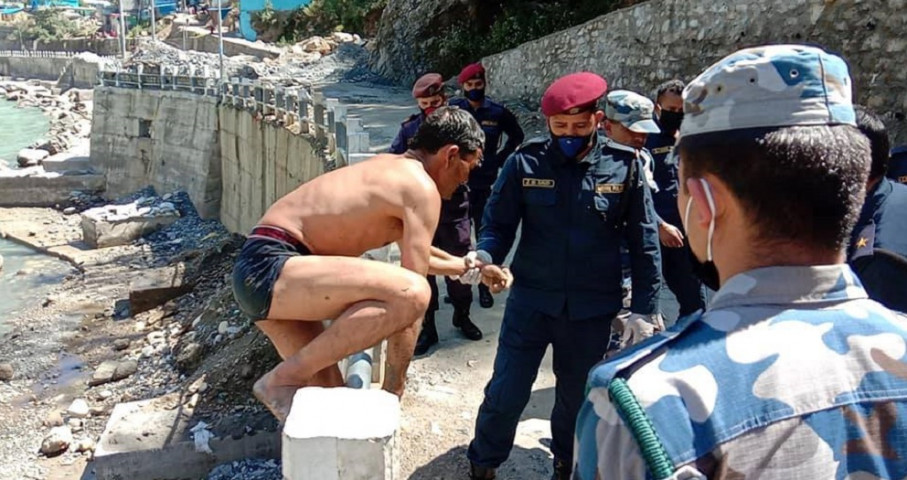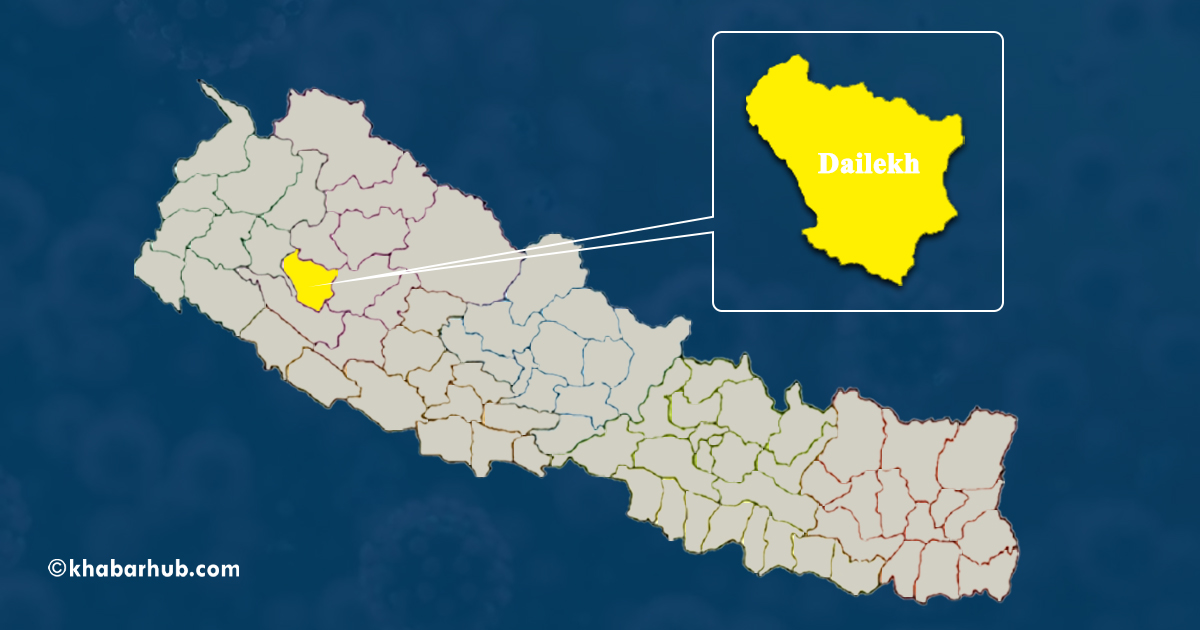DAILEKH: With tests coming out positive of over a hundred people on June 4, Dailekh district turns out to be one of the hotspots of coronavirus in Nepal’s Karnali Province.
The samples tested at the Karnali Academy of Health Sciences Lab has confirmed as many as 105 people, including a four-year-boy, from Dailekh had contracted the COVID-19 infection.
With this, the number of infected in Dailekh district has cross 360. Likewise, a 35-year-old male who died in a quarantine set up at Dullu Municipality of the district tested positive for coronavirus.
The male’s RT-PCR test was conducted at the Karnali Academy of Health Sciences, according to Dr Laxmi Tiwari, Chief of the Health Service Division, Karnali, said.
Karnali Province had not recorded a single case until mid-May when it reported its first case on May 18 – which is almost four months after Nepal’s first case was reported.
Meanwhile, 10 other cases were reported in Surkhet after five days, and by May 30, the tally crossed 100.
People’s representatives of Dailekh have, meanwhile, urged both the federal and the provincial governments to take immediate steps to stem the further spread of coronavirus in the district.
It should be noted that the District Administration Office (DAO) even imposed prohibitory orders in Narayan and Dullu municipalities of the district.
In fact, the increase in the number of coronavirus cases has been attributed to the number of people entering from India leading to a fear that the virus would spread to the communities in the district.
Interestingly, even though Karnali Province does not share its borders with India, most of the infected people in the province are found among the migrant workers returning from Nepal’s southern neighbor.
According to Laxmi Narayan Tiwari, chief at Health Services Division under the province’s Social Development Ministry, 114 people were infected on June 3; 100 on June 4; 98 on June 5; 54 on June 6, and 10 on June 7 in the province.
Meanwhile, Dailekh has been the worst-hit district in the province with 361 cases.
Chief Minister of Karnali Province, Mahendra Bahadur Shahi said the number of infections would rise if the authorities intensified testing.
“We have currently labs only at two places – Surkhet and Jumla,” he said adding that his government now plans to buy two PCR machines in a bid to expand the domain of testing.
Chief Minister Shahi added that around 39,000 migrant workers have returned to Karnali Province from India in recent times with some swimming across the Mahakali River.

So far, infection has been seen only among the India-returnees. If it spreads in the community, the situation will go out of control, experts warn.
More than 40,000 people are expected to return home from India while 12,000 have already arrived, local authorities have said.
According to the District Coordination Committee Chief of Dailekh, Prem Thapa, this trend shows an increased level of risk in the district.
“The provincial and the federal government must take immediate steps to stop the situation from deteriorating further.”
Mayor of Narayan Municipality in the district, Ratna Bahadur Khadka, meanwhile, said the delay in the PCR test helped the infection spread to the villages.
Khadka blamed the negligence on the part of the provincial government for making Dailekh the hotspot of Coronavirus.
He claimed that they are doing as per their capacity to control the pandemic in the district. “Now since this is a crisis, the central and provincial governments must act immediately,” he said.
A significant number of people staying in quarantine facilities in the district were sent home after their RDT showed negative.
However, it came to the fore that as many as 113 of them were tested positive in the PCR test. Among them, 87 are from the Narayan Municipality.
Meanwhile, amid the nationwide lockdown, the Karnali government has rescued as many as 130 people, including women and children, stranded in Nepalgunj.
Owing to the standstills on flights, the provincial government arranged to rescue the Humla residents using road transportation.
Harka Singh Bhandari of Kharpunath -4, Humla, said that the provincial government arranged for their homecoming using 3 vehicles. They were kept at the Surkhet-based quarantine facility.
Almost all school buildings in all the 11 local levels of Dailekh have been turned into quarantine facilities. Dailekh has four municipalities and seven rural municipalities.
However, though most of the local levels have accelerated the management of returnees by converting public schools into quarantine facilities, locals have complained that the risk of the virus spread has increased with the sub-standard management of the quarantines.









Comment